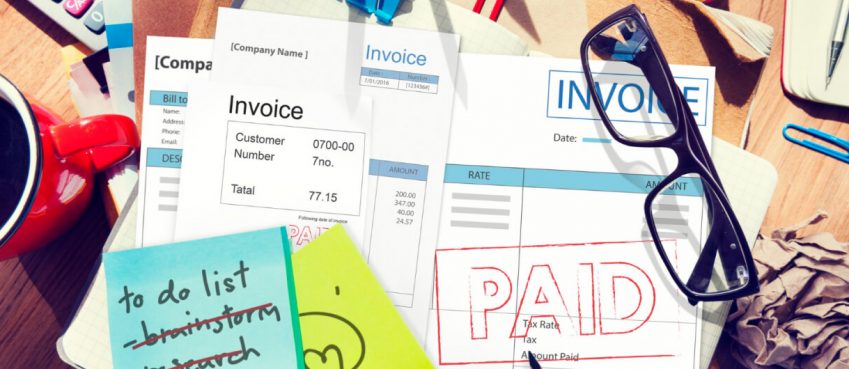
If you want to become a successful entrepreneur, you need a series of skills. Good financial management, both personally and professionally, is one of the essential skills of any business owner.
Many entrepreneurs, however, venture into the business world without proper financial knowledge and end up jeopardizing not only their business but their financial stability as well. This happens because many of them don’t know how to separate their professional and personal finances. As a result, they borrow money from inside their business for personal reasons or pour all their resources into the company and forget about retirement plans, savings, or overall planning for the future.
As a business owner, you can’t afford to lose track of your personal finances. This is why we have put together this list of tips to help you manage your money and keep your personal and business capital separate.
Separate Your Personal and Business Accounts
This is probably the number one piece of advice you are going to get from any successful entrepreneur. At least at the beginning of your entrepreneurship journey, you should be very careful not to mix your personal money with business capital. Not only will you be able to manage expenses better, but it will also help you in case something negative happens along the way.
Open a separate business account and only use it for company reasons. This will help you with taxes, as well as in the unfortunate case of litigation or bankruptcy. If you need more money to fund your business, opt for business loans or seek private investors, but never take out too much capital from your savings account, as you could risk putting your financial stability in danger.
At the same time, it may be tempting to “borrow” from inside the company funds to take care of personal issues such as buying a new car or renovating your house. Applying for personal loans or even considering reverse mortgages in Canada may be a much better option in this situation, as you can better manage your finances.
Also read: YellowStone Season 5: Part II Myths, Return Date & More! (A Complete Guide)Create A Personal Budget and Stick to It
Budgeting is something that anyone should learn how to do to keep track of their income and expenses. You don’t need to be a financial expert to manage your budget. All you need is a pen, some paper, and a calculator. The easiest way to manage your budget is to start writing down all income your household gets, no matter the source. Then, list down your monthly expenses beginning with the most important ones, such as a mortgage, grocery shopping, and bills.
Leave expenses that are not mandatory, such as subscription services or other entertainment payments for last, then look at the total. Ideally, you should be able to set aside 20% of your income for emergencies or put them in a savings account. This is based on one of the most simple budgeting techniques, called the 50/30/20 approach, where you set aside 50% of your income for needs, 30% for wants, and 20% for savings.
In time, as your business gets more and more successful, you will start seeing more money coming in. This is the moment most entrepreneurs forget their budgeting plan and start splurging. Now, nobody is saying you can’t treat yourself from time to time, but try to stick to the budget you have made even when your income increases.
Keep an Eye on Your Personal Spending
If you discover you are spending more money than you make, it may be time to make some changes in your spending habits. Start by monitoring expenses in the “want” category and see what you can cut down from there. I know it may be challenging to see everyone go for drinks every weekend or eat out four times a week, but you will thank yourself for not doing this in the future.
Also, try to keep your work expenses and personal expenses as separate as possible. This means making business-related purchases only from your company’s account and personal purchases from your personal account.
You can also look online for expense managing apps that you can link to your bank account, and they will automatically keep track of your budget. Also, consider challenging yourself and set a no-spending day every week. On this day, you are not allowed to spend money on anything other than the basics, such as bills, gas, or transportation.
Also read: 9 Best Cybersecurity Companies in the WorldUse Technology to Your Advantage
If you want to make sure you pay all your bills on time, it’s best to start automating the process. Link your payments to your bank account and set the due date for each of them. Then, the money will be automatically withdrawn from your account to cover the bills on the said date.
You can do so for your company expenses as well, to ensure you never miss a payment towards vendors or utilities. There is no need to say how much missing a payment can affect your business and set back production.
Automating your payment processes will also help you get a much better idea of how much money you are left with after all the essential expenses have been taken care of. This will make budgeting much easier and give you some peace of mind, knowing you don’t have to worry about missing payments ever again.
Set up a Savings or Retirement Fund
Even if you are in your 20s or 30s, it’s never too early to start planning for the future. Start putting some money aside in an emergency account to use when the time calls. Then, start planning for your retirement by setting up a retirement fund. You don’t need to start feeling a lot of money into it, but if you start saving now, you will thank yourself in the future.
Do your research and look for a retirement plan that can help you meet your set goals. If you are not sure how to set up a retirement plan, consider contacting a financial adviser to help you out with that and keep track of your finances from now on.
Top 10 News
-
01
Top 10 Deep Learning Multimodal Models & Their Uses
Tuesday August 12, 2025
-
02
10 Google AI Mode Facts That Every SEOs Should Know (And Wha...
Friday July 4, 2025
-
03
Top 10 visionOS 26 Features & Announcement (With Video)
Thursday June 12, 2025
-
04
Top 10 Veo 3 AI Video Generators in 2025 (Compared & Te...
Tuesday June 10, 2025
-
05
Top 10 AI GPUs That Can Increase Work Productivity By 30% (W...
Wednesday May 28, 2025
-
06
[10 BEST] AI Influencer Generator Apps Trending Right Now
Monday March 17, 2025
-
07
The 10 Best Companies Providing Electric Fencing For Busines...
Tuesday March 11, 2025
-
08
Top 10 Social Security Fairness Act Benefits In 2025
Wednesday March 5, 2025
-
09
Top 10 AI Infrastructure Companies In The World
Tuesday February 11, 2025
-
10
What Are Top 10 Blood Thinners To Minimize Heart Disease?
Wednesday January 22, 2025







